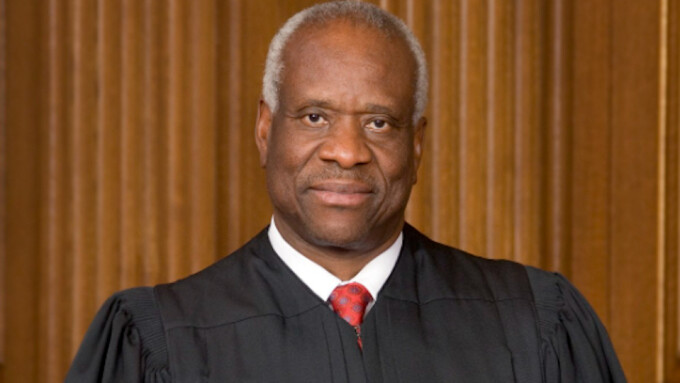WASHINGTON, D.C. — Supreme Court Justice Clarence Thomas today used a concurrent opinion about a case the court decided not to hear to issue a broader challenge on current liability protections for online platforms provided by Section 230, the so-called “First Amendment of the internet.”
Thomas agreed with the majority’s view that the court would not hear a case concerning malware blocking software companies Malwarebytes Inc. and Enigma Software Group USA LLC, but he also used the occasion to “open the door for the court to hear a broader challenge to Section 230 and decide ‘whether the text of this increasingly important statute aligns with the current state of immunity enjoyed by internet platforms,’” as legal news site Courthouse News reported.
“Courts have long emphasized nontextual arguments when interpreting §230, leaving questionable precedent in their wake. Extending §230 immunity beyond the natural reading of the text can have serious consequences,” Thomas also wrote, and specified his concern about giving companies immunity from civil claims for “knowingly host[ing] illegal child pornography” and “for race discrimination.”
“We should be certain that is what the law demands,” Thomas added, in a clear invitation to advocacy groups and religiously and politically motivated actors to bring forth cases to challenge Section 230 before the highest tribunal.
All-Hands-on-Deck Assault
The Supreme Court is currently down to eight members as it awaits confirmation of the late Justice Ruth Bader Ginsburg’s replacement. Senate confirmation hearings are currently taking place for the nomination of Judge Amy Coney Barrett for that seat, which was submitted by Donald Trump and is strongly supported by Senator Lindsey Graham (R-S.C.) and Attorney General William Barr, all of whom have demanded the repeal or drastic revision of Section 230.
According to an analysis by the Hollywood Reporter, Thomas has now come forward to join the current all-hands-on-deck assault on Section 230 by top Republicans and Republican-appointees in each branch of government in order to question “how courts are ‘reading extra immunity’ into Section 230, whether it's discarding ‘the longstanding distinction between 'publisher' liability and 'distributor' liability,’ ‘giving internet companies immunity for their own content’ and protecting online companies ‘from a broad array of traditional product-defect claims.'"
“Thomas ends with a suggestion — or maybe a call to action — that the high court may one day take a deeper look at the subject,” the Hollywood Reporter’s analysis concluded.
Thomas' concluding words carry a distinctly ominous tone. “Without the benefit of briefing on the merits, we need not decide today the correct interpretation of §230," he said. "But in an appropriate case, it behooves us to do so."






